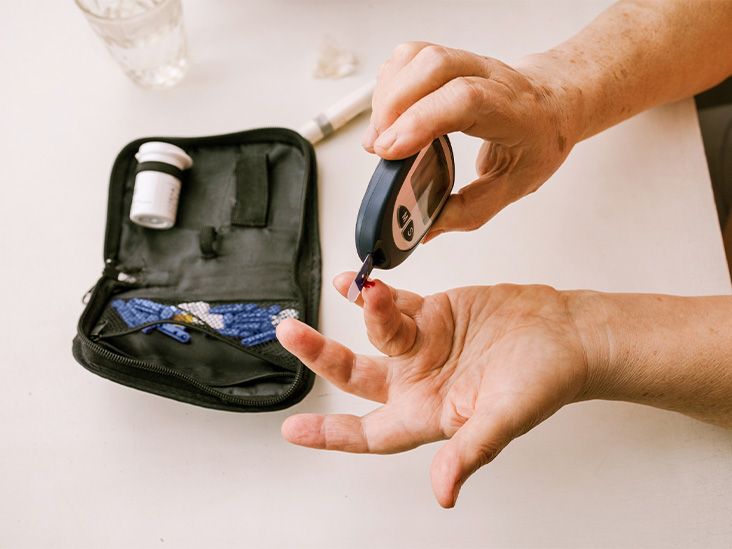Levothyroxine is a generic drug prescribed for hypothyroidism (low thyroid hormone levels) and certain thyroid cancers. As with other drugs, levothyroxine can cause side effects, such as hair loss and hyperthyroidism (high thyroid hormone levels).
Levothyroxine is available as the brand-name drugs Levoxyl, Synthroid, and others.
Levothyroxine comes as an oral tablet. Levothyroxine also comes in other oral forms and forms that are injectable but this article doesn’t cover them.
Read on to learn about potential common, mild, and serious side effects of levothyroxine. For a general overview of the drug, including details about its uses, see this article on levothyroxine oral tablet.
Levothyroxine has a boxed warning. A boxed warning is the most serious warning from the Food and Drug Administration (FDA). For details, see the “Levothyroxine: Side effect specifics” section.
Side effects aren’t common with levothyroxine oral tablet, but they can occur. Tell your doctor about any side effects that you experience after starting levothyroxine. They may be a sign that your doctor needs to adjust your dosage.
Mild side effects are rare but can occur with levothyroxine use. This list doesn’t include all possible mild side effects of the drug. For more information, you can refer to the levothyroxine oral tablet prescribing information.
Mild side effects that have been reported with levothyroxine include:
Tell your doctor about any side effects that you experience after starting levothyroxine. Depending on how severe they are or how long they last, side effects may be a sign that your doctor needs to adjust your dosage.
Note: After the FDA approves a drug, it tracks and reviews side effects of the medication. If you develop a side effect while taking levothyroxine and want to tell the FDA about it, visit MedWatch.
Levothyroxine oral tablet may cause serious side effects. The list below may not include all possible serious side effects of the drug. For more information, you can refer to the drug’s prescribing information.
If you develop serious side effects while taking levothyroxine, call your doctor right away. If the side effects seem life threatening or you think you’re having a medical emergency, immediately call 911 or your local emergency number.
Serious side effects that have been reported and their symptoms include:
- seizures
- hyperthyroidism (see “Levothyroxine: Side effect specifics” for details)
ALLERGIC REACTIONFor some people, the inactive ingredients in levothyroxine oral tablet can cause an allergic reaction.
In general, symptoms of allergic reaction can be mild or serious.
Ways to manage
For mild allergic reaction symptoms, such as a mild rash, call your doctor right away. They may recommend treatments to help manage your symptoms. They’ll also let you know whether you should keep taking the medication.
For severe allergic reaction symptoms, such as swelling or trouble breathing, call 911 or your local emergency number right away. These symptoms require immediate medical care because they can become life threatening. If you’ve had a serious allergic reaction to levothyroxine oral tablet, your doctor may recommend taking a different medication instead.
Levothyroxine oral tablet may cause several side effects. Here are some frequently asked questions about the drug’s side effects and their answers.
Are levothyroxine side effects in females different than in males?
Yes, having too much levothyroxine can cause symptoms in females that are different than in males. These symptoms include changes in menstrual periods, such as very light periods or missed periods. These changes are typical of hyperthyroidism, which is high thyroid hormone levels.
If you experience changes in your period, tell your doctor. They can determine the most likely cause and suggest ways to manage it. To learn more about hyperthyroidism, a serious side effect of the drug, see “Levothyroxine: Side effect specifics.”
Note: Sex and gender exist on spectrums. Use of the terms “male” and “female” refer to sex assigned at birth.
What are the side effects of too much thyroid medication?
The side effects of too much thyroid medication, including levothyroxine, are the symptoms of hyperthyroidism. You can read more about this in the “Levothyroxine: Side effect specifics” section.
What are the side effects of levothyroxine in older people?
Older adults (people ages 65 years and older) may be more sensitive to the effects of levothyroxine and having too much thyroid hormone. This age group may be more likely to have heart problems, which can worsen with too much levothyroxine. Symptoms may include:
Due to the increased risk of heart problems, doctors typically start with a lower dosage of levothyroxine in older adults. If you have concerns about taking levothyroxine given your age, talk with your doctor.
Learn more about some of the side effects that levothyroxine oral tablet may cause. To find out how often side effects occurred in clinical trials, see the drug’s prescribing information.
Serious or life threatening side effects if taken as a weight loss drug
Levothyroxine has a boxed warning not to take it as a weight loss drug. A boxed warning is the most serious warning from the FDA. It alerts doctors and patients about drug effects that may be dangerous.
Levothyroxine should not be taken for weight loss in people who have typical thyroid hormone levels. Doing so can lead to serious or life threatening side effects. These include seizures and coma. In some cases, the side effects can lead to death.
The risk of these side effects increases if levothyroxine is taken with other weight loss medications. Due to this risk, doctors typically don’t prescribe levothyroxine for people with typical thyroid hormone levels.
What you can do
Only take levothyroxine exactly as your doctor prescribes it. If you’d like to learn about weight loss options, talk with your doctor.
Hyperthyroidism
Hyperthyroidism means having too much thyroid hormone. Levothyroxine can cause hyperthyroidism if the dosage is too high. Very high levels of thyroid hormone can be life threatening.
Symptoms of hyperthyroidism may include:
- chest pain
- diarrhea
- excessive sweating
- sensitivity to heat
- fast heart rate
- fever
- headache
- heart palpitations
- increased appetite
- nervousness
- sleep problems
- tremor
- unintentional weight loss
Too much levothyroxine in children can cause their growth plates to close earlier than usual. This can negatively affect their growth. (Growth plates are at the ends of long bones, such as the thigh bone, where bone growth occurs.)
What you can do
Tell your doctor right away if you have symptoms of hyperthyroidism. They may need to adjust your dosage of levothyroxine.
If you experience chest pain or other heart symptoms, get medical care immediately. If you feel your symptoms are life threatening or a medical emergency, call 911 or your local emergency number.
Below is important information to consider before taking levothyroxine oral tablet.
Levothyroxine has a boxed warning. A boxed warning is the most serious warning from the FDA. For details, see the “Levothyroxine: Side effect specifics” section.
Other precautions
Before taking levothyroxine, discuss your health history with your doctor. Levothyroxine may not be right for you if you have certain medical conditions or other factors affecting your health. Be sure to talk with your doctor if any of the following apply to you:
- adrenal insufficiency (when adrenal glands don’t work well)
- anticoagulant treatment (to help prevent blood clots)
- clotting disorders
- diabetes
- heart disease
- osteoporosis
- previous allergic reaction to this or a similar drug
- pregnancy
- breastfeeding
- alcohol consumption
Disclaimer: Medical News Today has made every effort to make certain that all information is factually correct, comprehensive, and up to date. However, this article should not be used as a substitute for the knowledge and expertise of a licensed healthcare professional. You should always consult your doctor or another healthcare professional before taking any medication. The drug information contained herein is subject to change and is not intended to cover all possible uses, directions, precautions, warnings, drug interactions, allergic reactions, or adverse effects. The absence of warnings or other information for a given drug does not indicate that the drug or drug combination is safe, effective, or appropriate for all patients or all specific uses.


